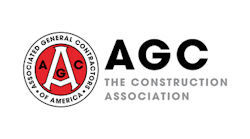By IBISWorld Procurement Research Analyst, Deonta Smith
LOS ANGELES – October 21, 2015 – After a series of only temporary solutions to funding necessary construction on the nation’s aging transportation infrastructure, Congress now has only days to make a decision on the latest highway bill that has been proposed as part of the MAP-21 Act.
Next week’s deadline comes only three months after Congress’ last effort to decide on a funding solution. But instead of a long-term bill, on July 31 Congress passed another short-term bill. The last long-term transportation infrastructure bill expired ten years ago. This stalemate is largely due to struggles in identifying appropriate “ways and means” of generating funding, with the federal gas tax (and its contributions to the Highway Trust Fund) regularly at the center of debate. Increasing the gas tax to help fund transportation infrastructure projects would be detrimental to a recovering economy, but not increasing it would escalate the federal budget deficit.
Short-term fixes not sufficient
Inability to pass a long-term funding solution has resulted in the continued aging and deterioration of the nation’s bridge, road and highway infrastructure. Meanwhile, the short-term fixes with inadequate funding have forced the Department of Transportation to allot emergency relief funds to repair roads and bridges damaged by weather and other events.
Additionally, progress on a long-term solution has hindered transportation and city planners. It is creating a backlog of vital road construction projects nationwide, as state municipalities are forced to forgo important changes to highway, transit and railroad programs that are necessary for economic growth, national connectivity, metropolitan accessibility and environmental protection. At a minimum, the delay of road and highway construction projects has limited the scope of city planning efforts as the cost of paving new roads and transportation routes have been rising. The number of issues created through short-term fixes further drives the importance of passing a long-term transportation infrastructure solution.
Benefits of a long-term bill
If passed, the proposed bill would yield cost savings on future transportation infrastructure projects. IBISWorld estimates that during the past three years, state governments with suspended or delayed transportation projects have incurred an average 1.2% annual increase in related construction service prices. Transportation construction projects include services such as construction project management, asphalt paving services, land preparation services, right-of-way maintenance services and quality and safety inspection services. Because the prices of these construction services are forecast to increase an average 1.7% per year through 2018, a long-term solution would help state municipals save money on construction projects.
IBISWorld also expects a number of downstream markets, including transportation and commercial business, to benefit from the passage of a long-term transportation infrastructure bill. For transportation markets likenational trucking, local freight trucking and rail cargo transportation, route planning is essential to reduce shipping times and fuel costs savings. The implementation of a long-term bill will allow state governments to invest in their overall transportation infrastructure’s efficiency by shortening and improving routes for transportation companies.
Commercial businesses (e.g. hotels, food service, food processing, restaurants and automotive firms) would also benefit from a long-term transportation bill. Although not widespread, failure to establish a long-term transportation measure has impeded commercial business growth within a number of states by neglecting or completely forgoing transportation routes from city centers to residential communities. Such access to safe and new roads hampers activity between businesses and their customers.
On the road ahead
Although a long-term bill will be more beneficial to a number of involved parties, another stopgap is already being considered to buy more time. Consistent with past concerns, government legislators want to avoid passing a bill that calls for an increase in the federal gas tax but are struggling to come up with alternative funding sources.
Last week, the House of Transportation Committee proposed a “long-term” bill that would allocate $325 billion to projects over six years, but in actuality, funding is only guaranteed for the first three years. Funding sources for the subsequent three years remain unknown. So with only days to the deadline, the outlook for a true long-term solution does not look good. With a short-term bill the likely contender, municipalities can continue to expect delayed infrastructure upgrades and repairs and increasing transportation construction prices.










